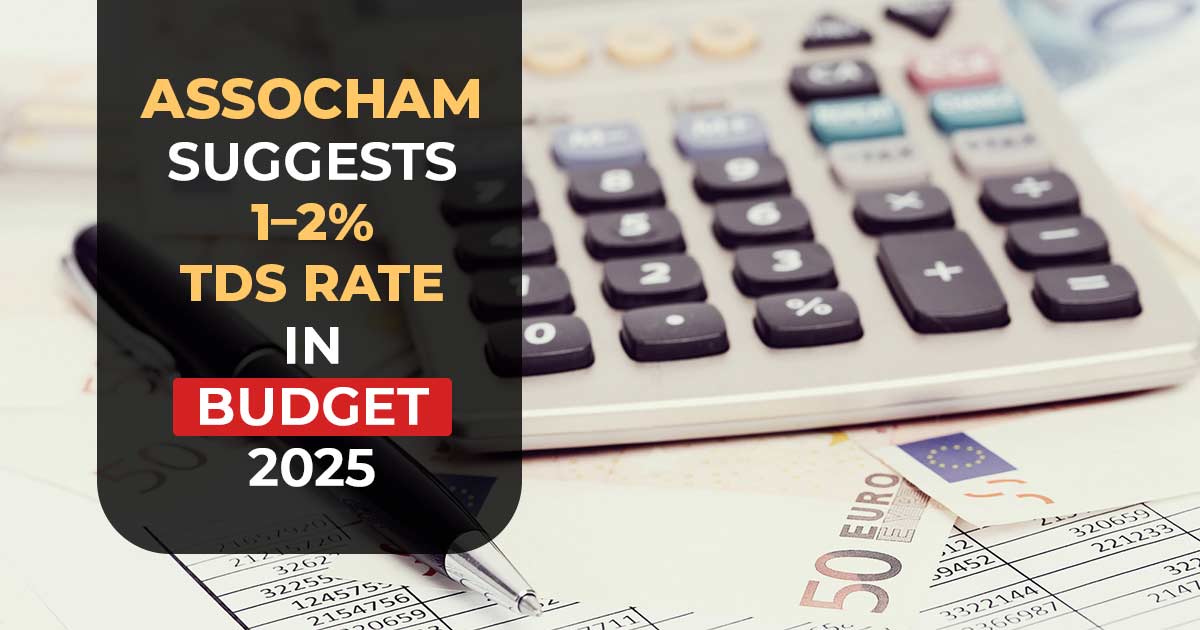
The Associated Chambers of Commerce and Industry of India (Assocham) has proposed a unified TDS (Tax Deducted at Source) rate of either 1% or 2% for payments to resident assessees.
This recommendation is presented as part of its pre-budget memorandum to the finance ministry. The main purpose of this is to reduce interpretational challenges and simplify tax compliance processes.
The industry body also advocated for the decriminalization of certain TDS defaults.
Criminal charges should apply only in cases where taxpayers have deliberately profited at the expense of the government. Situations, where Tax Deducted at Source (TDS) is not applied to specific payments or benefits, should not result in criminal proceedings, stated Assocham President Sanjay Nayar.
Nayar expressed about the upcoming Union Budget 2025-26 and suggested that it includes reforms to reduce tax disputes and promote easier compliance. He noted that the corporate sector is offering constructive recommendations to drive investment and consumption growth across the economy.
The chamber also expressed that tax neutrality should also be furnished for amalgamation and demergers.
While current laws provide tax neutrality for company mergers and demergers, they do not extend the same benefits to slump exchanges or resident shareholders of foreign entities involved in such transactions.
The chamber called for broader tax-neutral policies, ensuring that entity-level and owner-level transitions for all forms of entity conversions. This, according to Deepak Sood, Assocham’s Secretary General, would grant businesses greater flexibility to adopt organizational structures best suited to their needs.
Assocham identified gaps in provisions for capital gains exemptions and the carry-forward of losses for amalgamations, demergers and other forms of business reorganizations like slump exchange/sale.
It proposed simplifying and expanding these rules to help businesses optimize operations without incurring heavy tax liabilities or undergoing lengthy legal procedures with the National Company Law Tribunal (NCLT).
Additionally, the chamber advised that buyback proceeds be classified as dividends only to the scope that the company performing the buyback has got profits.
These suggestions aim to create a more business-friendly tax environment. It can boost investment opportunities and improve compliance standards.









